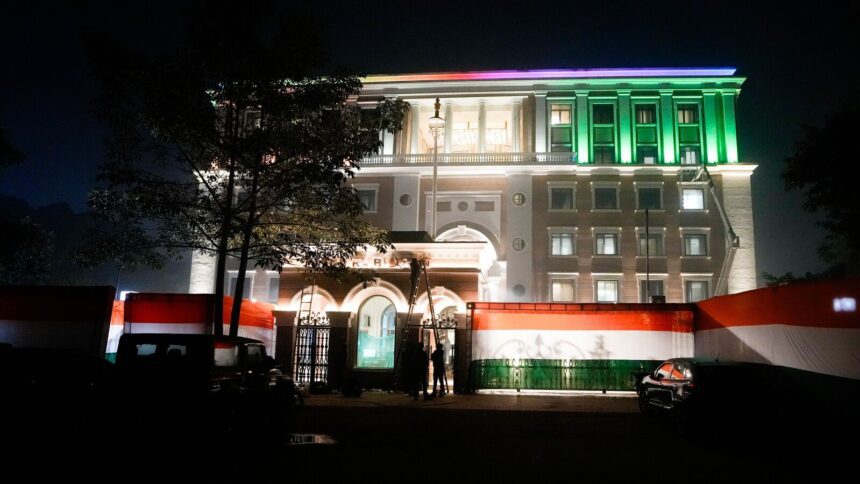A New Chapter for the Congress Party: The Move to Indira Bhawan
The Congress party made headlines on January 15, 2024, when it officially inaugurated its new national headquarters, Indira Bhawan, located at 9A, Kotla Road in New Delhi. This significant relocation marks the end of an era at 24 Akbar Road, where the party has operated since 1978. The move is not just a change of address; it symbolizes the Congress party’s attempt to reshape its identity and navigate the complexities of Indian politics in a rapidly evolving landscape.
Historical Context
The previous headquarters at Akbar Road has served as a crucial point for the Congress since the late 1970s, initially occupying a government bungalow that was the official residence of Gaddam Venkatswamy, a close ally of Indira Gandhi. The transition to Indira Bhawan has been a long time in the making; the foundation stone was laid in December 2009 by then-Prime Minister Manmohan Singh and Sonia Gandhi. The Congress faced delays over the years, ultimately taking 15 years to complete the move.
The Political Significance of Deen Dayal Upadhyay Marg
Interestingly, the new address carries with it a political undertone due to its proximity to Deen Dayal Upadhyay Marg, where the BJP’s headquarters is located. Upadhyay, an influential ideologue in the formation of the Bharatiya Jana Sangh (the predecessor of the BJP), has become an even more significant figure in the party’s history since the ascendancy of Narendra Modi.
Sonia Gandhi presided over the inauguration ceremony, attended by key party figures, including Mallikarjun Kharge, who have expressed a desire to rejuvenate the party’s fortunes. Analysts suggest that the Congress strategically opted to position its main entrance on Kotla Road rather than the politically charged DDU Marg, likely to distance itself from BJP’s legacy and avoid association with Upadhyay’s ideological framework.
Reflecting on Heritage: The Shift’s Timing
The move is also timely, coinciding with a new electoral cycle. With the upcoming assembly elections scheduled for February 5, 2024, the Congress party aims to reclaim its influence in the national capital, where it has struggled significantly in recent years. Once the dominant force in Indian politics, the Congress has faced challenges, not winning a single seat in the last two assembly polls in Delhi.
Political analyst Rasheed Kidwai notes, "Perhaps the Congress party did not want to be associated with Deen Dayal Upadhyay," emphasizing the importance of names and symbolism in politics. Names carry weight, and for the Congress, associating with figures tied to the BJP could be detrimental to their rebranding efforts.
The Future of Congress
As the party settles into its new headquarters, questions loom regarding whether this move will signify a turning point for the Congress. Will Indira Bhawan serve as a launchpad for a new political strategy? Can the Congress reinvent itself in a post-Modi political landscape? The historical context of both the building and the street names points towards a complex relationship with the BJP’s legacy.
In this phase of political reorientation, the Congress party is poised to face significant challenges, but the transition to Indira Bhawan symbolizes hope—a fresh beginning where the party can reclaim its narrative and potentially rewrite its political future.
Conclusion
Indira Bhawan represents more than just a new physical location for the Congress party; it is imbued with a sense of urgency to redefine its place in Indian politics against the backdrop of an assertive opposition. As this new chapter unfolds, all eyes will be on how the Congress leverages its new headquarters to galvanize support and revitalize its electoral fortunes in the coming year. Whether it leads to a resurgence in power or simply stands as a footnote in electoral strategies remains to be seen, but one thing is clear: the future of Congress at Indira Bhawan holds profound implications for its identity and aspirations in Indian politics.










